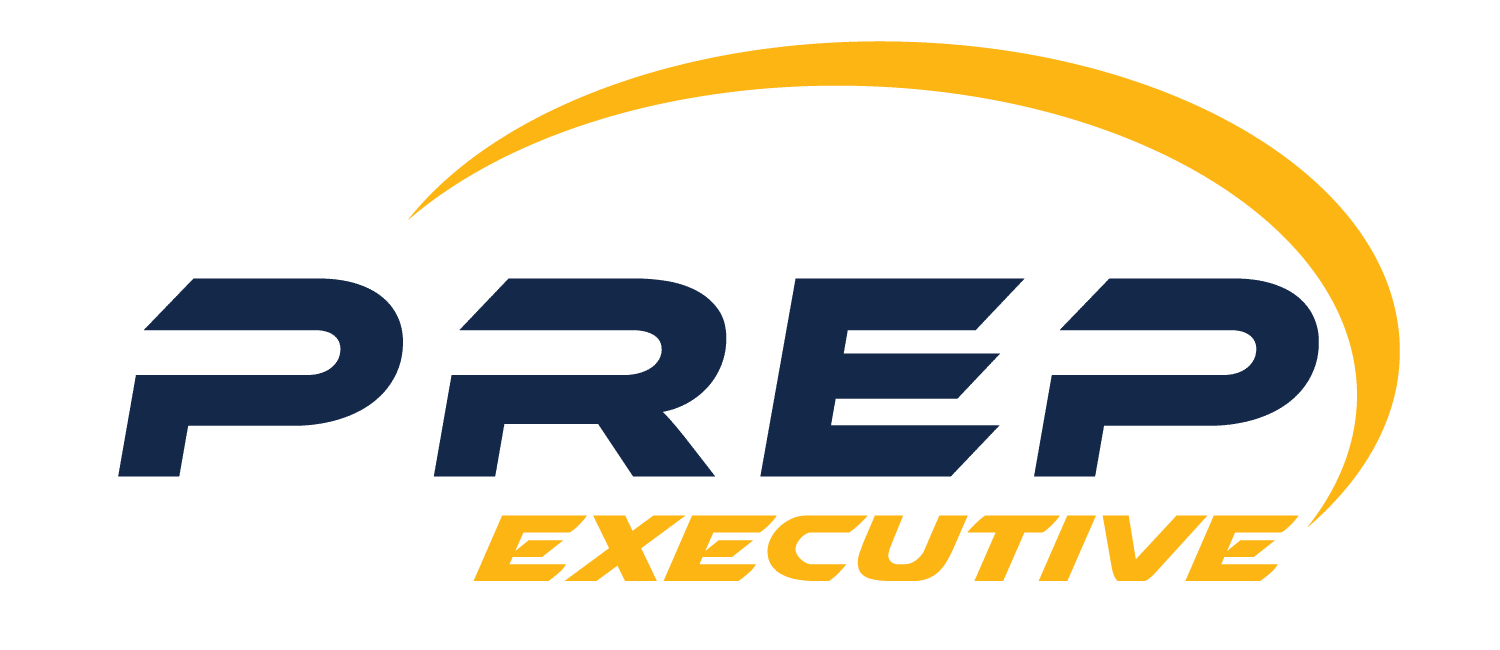Our “Expert’s Guide to Executive MBA Essays” may be a pretentious–and perhaps hyperbolic–title, but we hope to offer you our extensive expertise in Executive MBA essays in one all-encompassing article. Before creating Prep Executive, a tutor-led test prep company, we worked with many MBA and Executive MBA applicants over the years. Our experience has taught us that writing EMBA application essays is a big headache for EMBA aspirants.
If that’s you…then this guide is for you.
Unfortunately, the realm of Executive MBA application essay writing is so extensive that it is difficult to put everything into one guide. Therefore, our goals are to orient you to the essays, give you 12 tips to writing essays that will get you in, and describe the writing process that we follow with students as part of the Prep Executive Complete Plan.
Let’s get started!
Executive MBA Essay Basics
Typically, EMBA programs require between 2 and 5 essays as part of your application. Some “essays” may be extremely short, like this essay from Columbia:
Short-Answer Question: What is your immediate post-MBA professional goal? (50 characters maximum)
Examples of possible responses: “Work in business development for a media company.” “Join a strategy consulting firm.” “Launch a data-management start-up.”
Essay Question 1
Required; 750 word limit
What are your career objectives and how will the Wharton MBA Program for Executives contribute to your attainment of this objective?
Application essays are changed periodically, so your colleagues may have written different essays for the same program.
5 Types of Executive MBA Essays and How to Approach Them

Image: Unsplash
In general, Executive MBA essays can be grouped into 5 categories. Here are our notes on how to attack each type.
Future Goals Essay
This essay is an Executive MBA standard. There may be one or more questions asking about your short term (immediately after the EMBA), mid-term (3 to 5 years after graduation), and long term (10+ years) goals. Usually, this essay question includes how you expect the program to help you reach these goals.
When writing your future goals essay, keep one word in mind: clarity.
At this point in your career, you should have an extremely clear understanding of the next levels in your organization or profession. Your essay should reflect this clarity and make clear connections between the program and your goals.
We recommend a classic 5 paragraph structure for your future goals essay. Content of the body paragraphs will vary by question, but we have given you some ideas to start.
1. Introduction
3-4 sentences with one sentence that is a specific response to the prompt (the one goal). Preview short, mid, and long term goals or indicate that the program will refine you intellectually, practically, and socially.
2. Body paragraph
Short term goals and how the program will help OR how the program will improve your intellectual understanding of specific topics (focus on courses and electives).
3. Body paragraph
Mid-term goals and how the program will help OR how the program will provide practical learning opportunities (focus on project-based learning and other program elements).
4. Body paragraph
Long term goals and how the program will help OR how the program will improve your network or social skills.
5. Conclusion
2-3 sentences summarizing and making a final pithy statement regarding your fit for the program.
Previous History Essay
Another common EMBA essay question is about your previous history. Think 3 greatest achievements, 3 most significant influences, or 3 events that impacted your life.
The previous history is not about regurgitating your resume’. You must pick 3–and only 3–significant things. Since there is so much ground to cover in your essay, we recommend a classic 5 paragraph structure.
1. Introduction
2-3 sentences starting with philosophical reflection or a quote. One sentence must preview the 3 significant things as a direct response to the question.
2. Body paragraph
Professional thing. Tell a short story if you like but be sure to offer at 3 reasons why this thing makes the list of significance.
3. Body paragraph
Personal thing. You can talk about your family, children, or something of personal importance.
4. Body paragraph
Wild card. Discuss a unique something that showcases your personality. Some of our previous students have climbed Mt. Kilimanjaro, started a small nonprofit organization, or bought a business.
5. Conclusion
Another pithy wrap-up.
Weakness Essay
These essays will ask about a time when you failed or received criticism. Alternatively, you may be asked to write about 1 or 3 weaknesses.
No matter how the question asks about the weakness or failure, it needs to be epic and authentic. Everyone can see through the strengths disguised as weaknesses, so you need to tell a story in which you really “screwed the pooch.”
Our favorite format for this essay is as a 3 paragraph story:
1. Paragraph 1
Start with a quote from the person you hurt, offended, or disappointed. Segue into a short background for the reader of what happened.
2. Paragraph 2
Elaborate on the ripple effects of the failure or weakness. Think professionally, socially, etc.
3. Paragraph 3
Discuss how you addressed the failure and improved or moved on from it. This paragraph must be about proactive remedies so that the essay ends on a positive note.
The uglier the story the better. Some of our previous students wrote about getting into a screaming match with a manager, losing thousands of dollars in a poorly researched business deal, and almost ruining 2 subordinates’ careers. Epic…
Promise Essay
The promise essay is a new essay type that has shown up in recent years. The basic idea is that the EMBA program wants you to think about an important commitment you will have in the near future and plan (or promise) what you will do.
Two common themes are how you will balance the demands of the program with your existing commitment and what you will contribute to the program. Questions regarding the program may include during class discussions, to your classmates, or as alum (the program needs alumni who will show up).
Promise essays can be difficult to write because you do not want to commit yourself to something you do not intend to do. Our advice is to focus on concrete, doable promises. Here are some examples:
How you will contribute:
- In class: unique perspective to discussions, team spirit to projects, professionalism to international assignments
- Outside of class: represent the program well, blog about your experiences (if you are an influencer)
- As an alum: speak with applicants with a similar profile (e.g. women, entrepreneurs), attend a coffee chat or networking reception
How you will balance the program with current commitments:
- Class time: inform employer, delegate more responsibilities
- Study time: schedule weekly study time, inform family and friends, reduce social commitments, talk extensively with spouse about responsibilities
- Travel time: get more vacation time by employer, restructure work travel schedule
If possible, provide examples of how you have completed a similar action in the past. For example, if you say you would be willing to speak with applicants who are women entrepreneurs, talk about how you already attend a women’s business meetup and have contributed to that organization. As much as possible, try to back up the promises with concrete examples.
Structurally, the promises essay can be classic 4 or 5 paragraphs.
Wild Card Essay
We call this essay type the wild card because it’s an off the wall question designed to learn more about you as a person. We recommend showcasing your true personality and using the wild card essay as an opportunity to differentiate yourself from other candidates.
Here are some wild card essay examples:
From New York University Stern:
NYU Stern is committed to helping students develop a deeper set of professional skills, and a broader perspective of the role of business in the world. (approximately 500 words, double-spaced)
a) What is a significant contemporary issue on which you, as a business leader, would like to have an impact?
b) Why is it important to you?
c) How could you leverage your skills and resources to address the issue?
Previously from London Business School:
If you could choose any three people who have ever lived to join you for dinner, who would you invite and why?
If you were on the cover of any publication in 10 years, what would be the headline and the content of the article be?
12 Tips for Writing Killer Executive MBA Essays

Image: Unsplash
Phew!
Now that we’ve have explained the 5 main types of Executive MBA essays and how to attack them, here are our 12 tips for writing essays that will get you in.
Outline the essay first.
Use one of the general structures I have given you as a starting point. As a person that has read many, many essays, I can tell you that there is an OBVIOUS difference between an essay that was outlined first and an essay that was written almost as a stream of consciousness.
Be sure to answer the question.
After you have outlined the essay, ensure that your main points provide a list or reasons answering the question. When writing the introduction, make sure there is one sentence that is a direct answer to the question. After you have written the first draft of the essay, check again that you have answered the question.
Stay away from controversial topics.
Even if you think Donald Trump would make a fabulous dinner guest for your wildcard essay, do not list him. He is too polarizing of a public figure to risk your EMBA essays on.
Show don’t tell.
Within your body paragraphs, you need to substantiate your reasons or list with details AND examples. Use short stories from your past to illustrate and liven up your body paragraphs.
Be personable not personal.
Reveal some but not all of who you are. Your essays should reveal your perspective, humanity, and experience, but not tell your secrets and be too intimate.
Abusive parents? Gave a child up for adoption? Wish you had studied something totally different in undergrad? These topics may be slightly too personal for your EMBA essays.
If there’s a weakness/failure question, talk about a really epic failure, not a fake one.
We can’t stress this enough! Be authentic (but not personal or controversial).
Don’t talk too much about your family or ethnic/cultural background.
While these are important components of who you are, they should be mentioned in only one essay and, preferably, not the same essay. Too much discussion of family or culture makes you seem obsessed or overly concerned with them. Remember that you’re applying to a professional program.
Follow the maximum word count.
If the requirement is 700 words, get as close as you can to 700 without going over. Traditional advice is that you can go 10 percent over the maximum word count, but we think smart editing demonstrates your humility and ability to adhere to the program’s rules.
Don’t forget about grammar, spelling, punctuation, and capitalization.
Use Grammarly or ask your favorite grammarian to review the essay.
Only have someone you think is really smart review your essay.
Since the final audience is a group of smart professionals, find another one to take a preliminary look at what you consider the final draft.
Think of the essays as 3 stories in the same book. They should flow and not be redundant.
If you find yourself mentioning the same stories or points in different essays, you have to broaden your thinking.
Get Expert Help

Image: Unsplash
Executive MBA essay writing can be complicated and full of uncertainty, especially if you don’t think you are a good writer. That’s why we included essay help in our Prep Executive Complete Plan. Here’s the process we follow during essay help. You should follow the same process if you are working on your own.
1. Create a detailed outline of each essay.
We call you on Skype and ask you questions about each essay. We take notes then send them to you with a recommended writing structure.
2. Write the first draft.
You write the first draft from our notes. Since we have captured your phrases and ideas, you will have no problem turning the notes into sentences.
3. Revise the first draft.
We take that first draft and review it for the big ideas. Did you stay on topic? Are your examples robust? Is the structure reader-friendly? We provide comments in track changes and send the essays back to you.
4. Revise the second draft.
You make changes based on our comments and send the essays back to us. For the second draft, we look the structure within each paragraph and go through each sentence word by word. If your essay is over the word count, we cut, cut, cut. If revisions are needed, we provide comments in track changes and send the essays back.
5. Revise the third draft.
As part of the revision for the last draft, we look at grammar, spelling, punctuation, capitalization, and diction. We will let you know if anything else needs to be changed.
If you and your editor are both happy with the essays, you’re done!
Final Thoughts on Executive MBA Essays
Before you start working on Executive MBA essays, make sure you have:
Each of these activities will give you key information that will make writing your essays easier as well as increase your chances of getting accepted into your chosen program. If this process seems overwhelming, reach out to us and we will help you!
Free 7 Day Executive MBA Strategy Course
Want to know how to get into any Executive MBA program? Take our free 7 day email course to learn a proven strategy, complete with tips, examples, homework and more. Sign up now to start the course today.
You May Also Like…
Info

20 Questions About the Executive Assessment Exam Answered
Admissions exams change over time and the Executive Assessment (EA) exam is no different. In fact, since being...
Admissions

How to Prepare for the GMAC Executive Assessment
In this post, we're going to breakdown exactly how to prepare for the GMAC Executive Assessment (EA). There's lots of...
Programs

Which Schools Accept Executive Assessment?
As of June 2020, more than 90 business schools accept the Executive Assessment as an admissions test. Each business...







